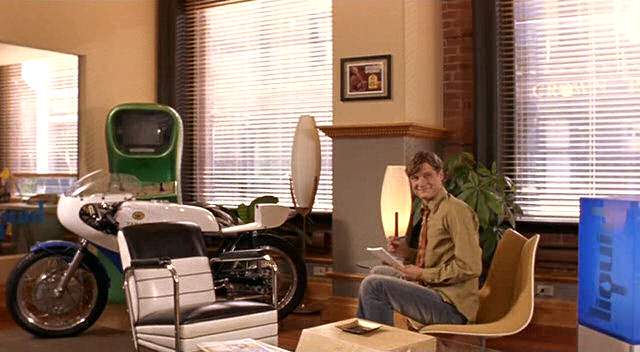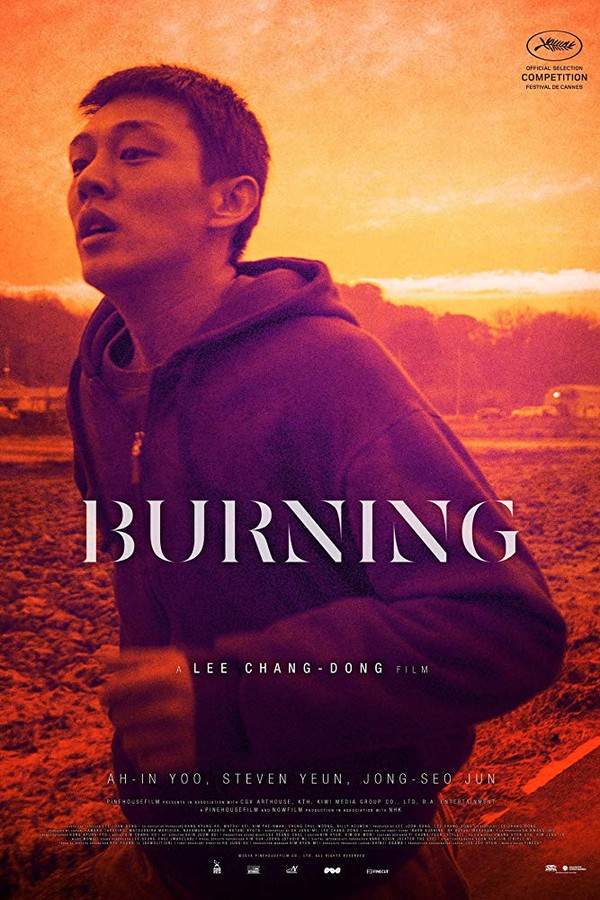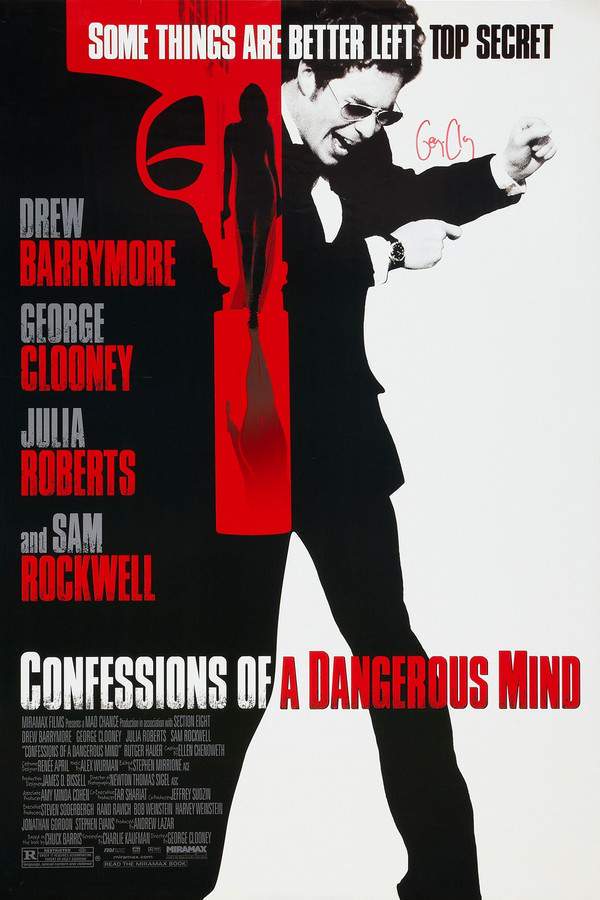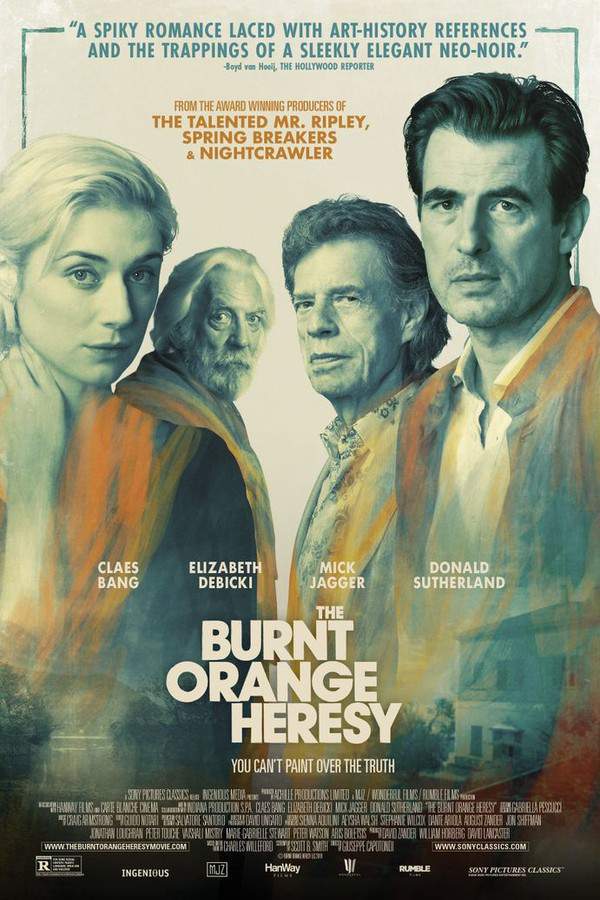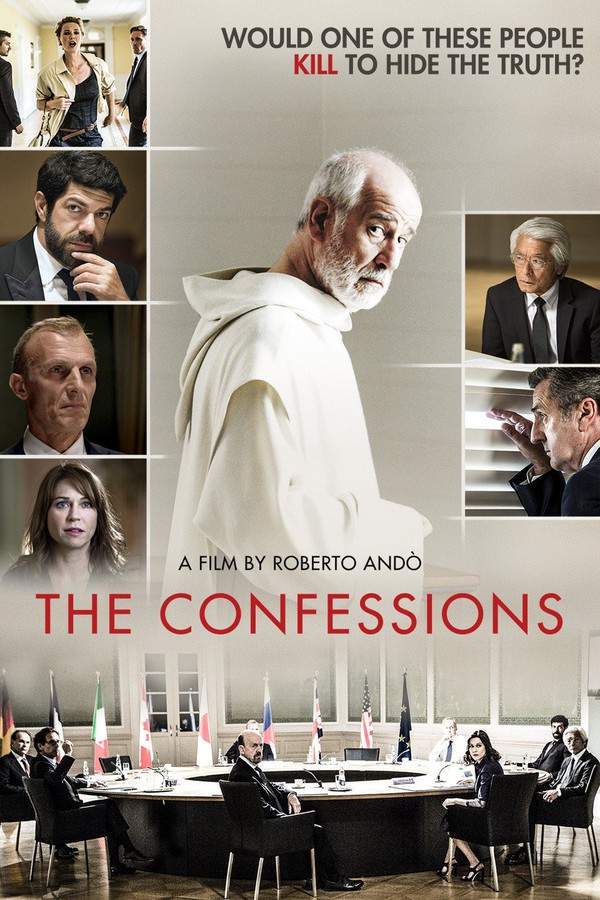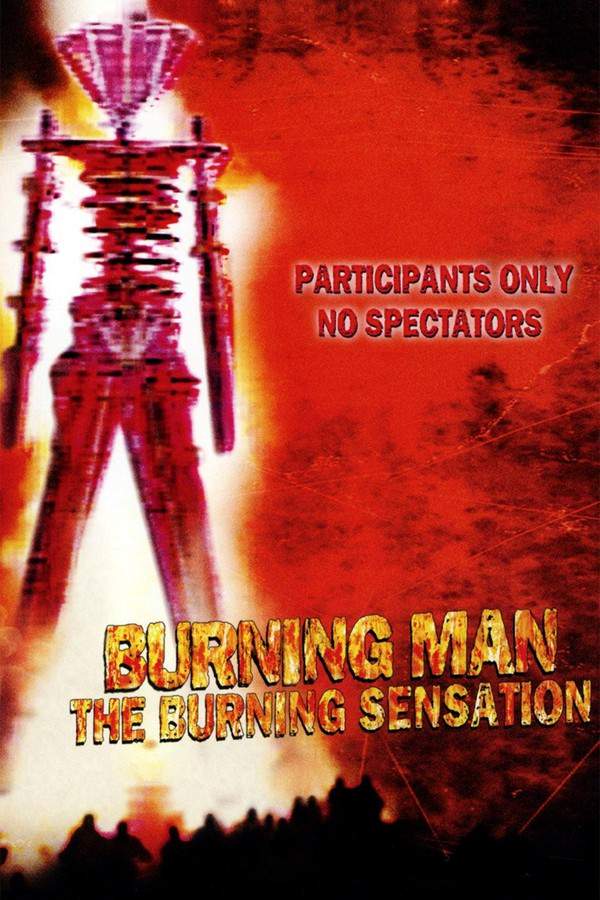Confessions of a Burning Man 2004
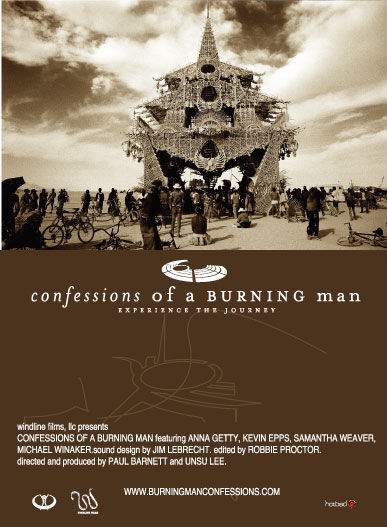
Each year, participants journey to the Nevada desert for the Burning Man festival, a unique and transformative event. This film explores the art, radical self-expression, and strong sense of community that characterize the Burning Man experience, offering a glimpse into the lives and motivations of those who participate in this extraordinary gathering.
Does Confessions of a Burning Man have end credit scenes?
No!
Confessions of a Burning Man does not have end credit scenes. You can leave when the credits roll.
Meet the Full Cast and Actors of Confessions of a Burning Man
Explore the complete cast of Confessions of a Burning Man, including both lead and supporting actors. Learn who plays each character, discover their past roles and achievements, and find out what makes this ensemble cast stand out in the world of film and television.
No actors found
External Links and Streaming Options
Discover where to watch Confessions of a Burning Man online, including streaming platforms, rental options, and official sources. Compare reviews, ratings, and in-depth movie information across sites like IMDb, TMDb, Rotten Tomatoes or Metacritic.
Ratings and Reviews for Confessions of a Burning Man
See how Confessions of a Burning Man is rated across major platforms like IMDb, Metacritic, and TMDb. Compare audience scores and critic reviews to understand where Confessions of a Burning Man stands among top-rated movies in its genre.

37
Metascore
tbd
User Score


30%
TOMATOMETER

60%
User Score

7.0 /10
IMDb Rating

40
%
User Score
Take the Ultimate Confessions of a Burning Man Movie Quiz
Challenge your knowledge of Confessions of a Burning Man with this fun and interactive movie quiz. Test yourself on key plot points, iconic characters, hidden details, and memorable moments to see how well you really know the film.
Confessions of a Burning Man Quiz: Test your knowledge about the life and adventures of Chuck Barris in 'Confessions of a Burning Man'.
In which city did Chuck Barris grow up?
New York
Los Angeles
Philadelphia
Chicago
Show hint
Full Plot Summary and Ending Explained for Confessions of a Burning Man
Read the complete plot summary of Confessions of a Burning Man, including all major events, twists, and the full ending explained in detail. Explore key characters, themes, hidden meanings, and everything you need to understand the story from beginning to end.
The film unfolds through a compelling mix of Chuck Barris’ private journals, public records, and recorded interviews. Set in 1940, Chuck Barris, portrayed by Sam Rockwell, navigates his teenage years in Philadelphia, where his singular focus on promiscuity leads to the occasional disappointment despite his numerous attempts with various women. His life takes a turn in 1955 after being inspired by a television advertisement, prompting him to move to Manhattan to pursue his dream of becoming a celebrated television figure.
Upon applying for the management trainee program at NBC, Chuck resorts to dishonesty on his application, as the competition is fierce with 2,000 applicants vying for only 5 spots. He becomes involved with a fellow page, Georgia, played by Jennifer Hall, who ends up pregnant just as he faces termination from his job—ultimately revealed to be due to mere tardiness in her cycle. Following this setback, Chuck returns to Philadelphia and lands a role as personal assistant to the legendary Dick Clark on American Bandstand in 1961. Here, his chase for fame continues as he becomes romantically linked with Debbie (played by Maggie Gyllenhaal), an executive at ABC.
During this time, Chuck writes the hit song “Palisades Park” and falls for Penny Pacino, portrayed by Drew Barrymore, who happens to be Debbie’s roommate. It is from this burgeoning relationship that Chuck devises an idea for a unique dating show. With approval from ABC, he sets out to develop The Dating Game, initially securing $7,500 for a pilot—only to face disappointing rejection as the network opts for Hootenanny instead.
After a heated scuffle at a bar leads to his dismissal, Chuck encounters CIA agent Jim Byrd (played by George Clooney), who lures him into the world of espionage. Jim entices Chuck with tales of lucrative pay and adventures, including the allure of Eastern European women. Following basic training, Chuck exhibits exceptional skill as a sniper. The narrative takes a darker turn when, after a mission in Mexico, he returns to find Penny transformed into a peace-loving hippie, coinciding with ABC’s decision to green-light The Dating Game.
As the show skyrockets in popularity by 1967, Chuck is thrust into the limelight, yet is pressured to impose stricter content rules to maintain broadcast standards. Jim offers a tantalizing proposition where the show’s prize money could cover Chuck’s covert missions around the globe. Delving deeper into the intriguing world of the CIA, Chuck undertakes an assignment in Helsinki, where he crosses paths with the attractive operative Patricia Watson, played by Julia Roberts.
Success follows him on the home front with The Newlywed Game, but his aversion to commitment puts a strain on his relationship with Penny. As Chuck’s life mirrors that of the protagonist Teufelsdröckh from Thomas Carlyle’s Sartor Resartus, the narrative reflects a philosophical journey intertwined with his personal struggles.
In 1970, Chuck is roped into another mission in West Berlin to eliminate communist Hans Colbert, leading to a harrowing experience of captivity at the hands of the KGB. He eventually escapes, only to face increasing complexities in both his professional and personal life, including the tragic murder of Jim’s ally, Keeler (Rutger Hauer), and cancelation of his shows due to dwindling ratings.
As Chuck’s psyche unravels amidst a backdrop of past traumas, he grapples with reluctance towards marriage and the existential weight of his double life until a fateful confrontation with Patricia reveals her as a traitor. Following their climactic encounter, Chuck resolves to pen his autobiography, Confessions of a Dangerous Mind, and makes the leap to finally commit to Penny. However, his confession of a life led in shadows is met with skepticism, leading him to reconsider his narrative. In 2002, he prepares for an anticipated interview about his memoir, embodying the perplexities of his double existence.
Uncover the Details: Timeline, Characters, Themes, and Beyond!

Coming soon on iOS and Android
The Plot Explained Mobile App
From blockbusters to hidden gems — dive into movie stories anytime, anywhere. Save your favorites, discover plots faster, and never miss a twist again.
Sign up to be the first to know when we launch. Your email stays private — always.
Discover Film Music Concerts Near You – Live Orchestras Performing Iconic Movie Soundtracks
Immerse yourself in the magic of cinema with live orchestral performances of your favorite film scores. From sweeping Hollywood blockbusters and animated classics to epic fantasy soundtracks, our curated listings connect you to upcoming film music events worldwide.
Explore concert film screenings paired with full orchestra concerts, read detailed event information, and secure your tickets for unforgettable evenings celebrating legendary composers like John Williams, Hans Zimmer, and more.


Cars Featured in Confessions of a Burning Man
Explore all cars featured in Confessions of a Burning Man, including their makes, models, scenes they appear in, and their significance to the plot. A must-read for car enthusiasts and movie buffs alike.
Confessions of a Burning Man Themes and Keywords
Discover the central themes, ideas, and keywords that define the movie’s story, tone, and message. Analyze the film’s deeper meanings, genre influences, and recurring concepts.

Unlock the World of Movies with Our Comprehensive Wiki
Dive into our Movie Wiki for in-depth film encyclopedia entries, including cast biographies, production trivia, plot synopses, behind-the-scenes facts, and thematic analyses. Whether you’re researching iconic directors, exploring genre histories, or discovering hidden easter eggs, our expertly curated movie database has everything you need to fuel your cinematic passion.

Similar Movies To Confessions of a Burning Man You Should Know About
Browse a curated list of movies similar in genre, tone, characters, or story structure. Discover new titles like the one you're watching, perfect for fans of related plots, vibes, or cinematic styles.
Quick Links: Summary, Cast, Ratings, More

What's After the Movie?
Not sure whether to stay after the credits? Find out!
Explore Our Movie Platform
New Movie Releases (2026)
Famous Movie Actors
Top Film Production Studios
Movie Plot Summaries & Endings
Major Movie Awards & Winners
Best Concert Films & Music Documentaries
Movie Collections and Curated Lists
© 2026 What's After the Movie. All rights reserved.















